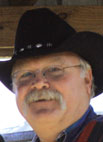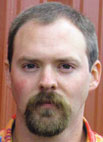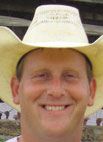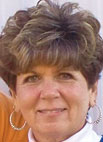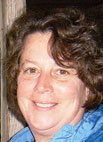Keep on Rolling
George Anderson had a varied career in the poultry industry. Coming out of college he worked as a field man for Tyson's for a couple of years, and then four years for George's. However, he soon found that being his own boss was more to his liking. “I don't play well with others, I don't think. It took me a long time to figure out if my boss did something stupid, he didn't want me to tell him,” joked George. So, for the past 15 years he's been a grower for George's at his Dogwood Farm in Lowell, Ark., and his second location in Clifty, Ark.
They Know Their Product
Husband and wife team Tom Huls and Dr. Diane Balich, DVM, don't ever stay still for long, but that's just the way they like it. The couple owns the 350-acre Sugar Springs Angus Ranch in Lincoln, Ark. In 1983, the pair moved to Arkansas from Yankton, S.D. They decided on Lincoln when Diane saw an advertisement for a job opening with a new vet clinic in Lincoln. “They were looking for a veterinarian with an interest in dairy, and I have my master's degree in dairy science, so I came down and he offered me the job. I wasn't really sure I wanted to leave yet, but he kept calling me and calling me and talked me into it," shared Diane.
Prevention and Maintenance
Billy Joe and Courtney Wilkins live on a 250-acre ranch in Lutherville, Ark. They have worked this ranch, its six chicken houses, 80 or so cows and four or five bulls, for three years. The Wilkins have two little girls, Josie, who's 3 years old, and Abby their 4-month-old baby. Courtney works second shift, twelve hours a shift at Tyson’s. Also she’s in the process of getting her master's degree. Billy Joe calls her super mom, which she denies quietly, with a smile. Billy Joe works the farm full time now.
The Right Bloodlines
Jason Robinson of J&H Farms thinks he was surely born around 100 years too late. He could definitely live without all of today’s modern conveniences. In his opinion, life is better seen from the back of a horse.
Pluck And A Little Luck
Travis Chism and his wife Christy are living the American dream. Well, that is if that dream carries with it the care and raising of Butterball turkeys and a herd of cattle.
Docility is the Key
"Girl, set me up on my horse, come on, and get the dogs,” Those are the words of Beth Ferguson's grandfather, even after he was diagnosed with cancer. “He rode up until just weeks before he passed away. I hope that I can enjoy things as much as he did. That was a good life.” Beth's life has revolved around horses since before she can remember. “My mom said when I was little she'd drive down the road and I'd just start screaming. She couldn't figure out what was wrong at first, but eventually she figured out it was horses. Every time I would see one, I'd just get excited and start screaming. I've always loved them, for as long as I can remember, and from what she says, even before I can remember.”
Helping Kids Raise Winners
Hurricane Rita came blaring through in 2005 destroying the hospital in Orange, Texas where John Pickering was Maintenance Director. “I helped close it down. When the last helicopter took our last ICU patient, I left right behind them,” John said. “There were only three people that stayed to make sure all the patients got out. John was one of them. He saved a lot of lives. He is my hero,” Cheryl, John’s wife, said. Cheryl wanted to come home to Arkansas after the hurricane. John had to return to the hospital the following day to start rebuilding it. He stayed, working 12-hour days for the next six weeks, getting the hospital back up and running. After Rita, John and Cheryl officially moved to Arkansas for good. But they have been back several times since, most recently after Hurricane Ike, to help John's father.
Getting Good At Goat Production
In 1997, Holly and Matt Linck's daughters, Rachel and Shelby, were attending school at Southside, Bee Branch, Ark., and were involved in 4-H. They had pastureland that was mostly browse at their 40-acre farm on Harmony Mountain Road near Choctaw, Ark., and the girls wanted to get involved in showing livestock.
Maines Make It Work
"In every conceivable manner, the family is a link to our past, a bridge to our future," summarizes Alex Haley, the author of "Roots." Family farming roots in Arkansas run deep, but the future generation of farmers is more in flux. However, in the Whorton family of Lincoln, Ark., there is no doubt that the farming tradition started by family patriarch and matriarch, Basil and Wilma Whorton will be continued on through the third generation. Basil was the Vice President of Phillips Food Center/Food-4-Less in Bentonville prior to retiring, but always farmed on the side. Sadly, Basil passed away two years ago, but his legacy endures. His wife Wilma still lives on the farm, and his son Tim, daughter-in-law Stephanie, and grandson Tyler run Whorton Cattle Company. Bridging not just generations, but careers, Tim and son Tyler also own Country Feed and Farm Supply in Lincoln. In two weeks, the family will expand, as Tyler weds his fiancé Matea Stilley of Kansas, Okla., and starts a second operation in Leach, Okla.
Bosses of A Big Family Business
LeAnna and Bob Hall met at a rodeo 22 years ago. Bob team roped professionally. LeAnna primarily competed in barrel racing and later in team roping. They still attend rodeos today, now with their younger son Brenten. Dylan, their oldest son, just graduated from high school and is attending NEO in Miami, Okla., with a full scholarship earned by judging horses. Brenten is just in the fourth grade, but has already completed his third year of junior rodeos, winning a number of trophies, buckles, cash prizes and two saddles. "We never even thought about it. Nothing else was an option. We just always had land and cattle," she added. "We are really blessed."


